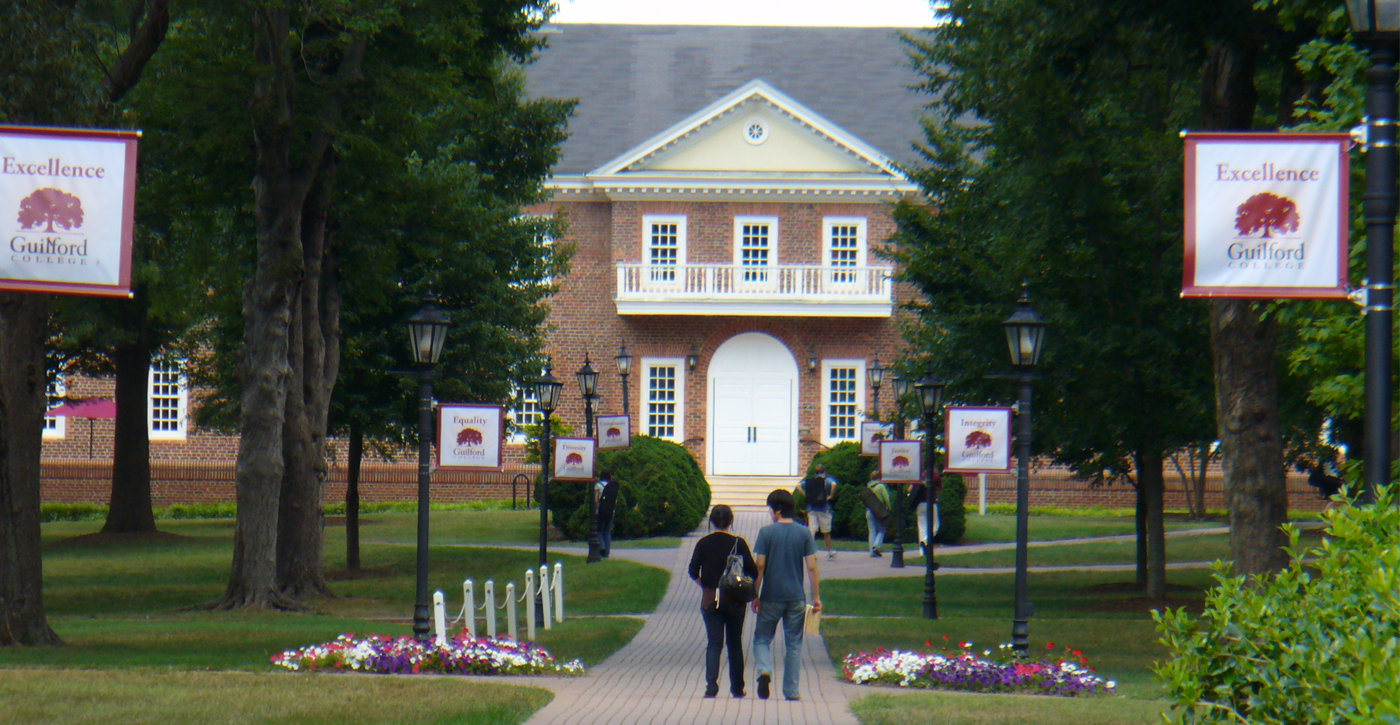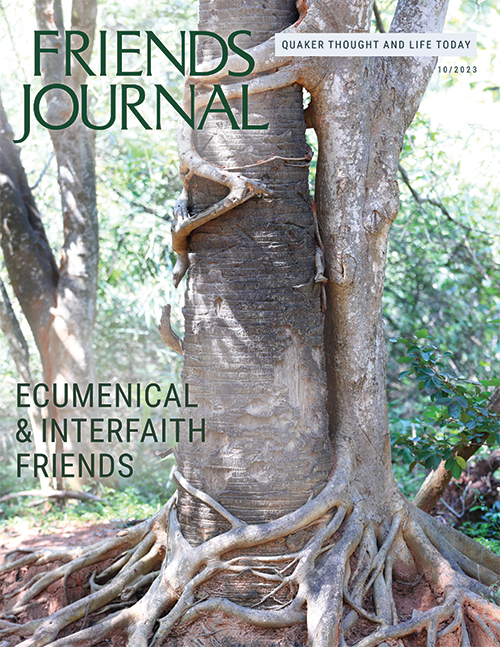Learning about other faith traditions can initially evoke feelings of unease. Encountering unfamiliar beliefs and practices can challenge one’s existing worldview and sense of security. It can force us to question our deeply rooted beliefs and confront the possibility of truths outside of our own understanding—a potentially unsettling experience. The fear of being swayed or influenced by different beliefs can arise, while some worry about losing their own faith or deserting their spiritual identity in the face of diverse theological perspectives. Moreover, the history of global religious conflicts and tensions can contribute to apprehension when engaging with other faith traditions. Misunderstandings and unintended biases can perpetuate a sense of unease, leading individuals to approach the exploration of other faiths with caution. However, these fears can be overcome through education, skillful dialogue, and respectful engagement that can foster understanding, empathy, and a broader appreciation of religious diversity and deeper understanding of one’s own tradition and practice.
Interfaith Collaboration in the Data
Social scientific data sources reveal significant rates of interreligious cooperation and conversation among religious congregations and clergy. Utilizing data from the National Congregations Study and National Survey of Religious Leaders, we can examine the involvement of congregations and clergy in various interfaith activities. We find that religious congregations and clergy exhibit high levels of interfaith collaboration and conversation. Despite the diversity among religious traditions, the consistent engagement in interfaith work by congregations and clergy in the United States is remarkable. The rates of involvement have remained stable or increased over the past two decades, even amidst changes in the religious and societal landscape. This emphasizes the significance of interfaith work for religious congregations across the spectrum.
Mainline Protestant congregations, including Quakers, consistently surpass the average in engaging in interfaith collaboration and dialogue. This suggests that they are firmly grounded in their own tradition and identity to effectively participate in this work. We are left with the question of why we continue to see evidence of widespread interfaith work, despite the fact it is often uncomfortable and exposes the fears and inadequacies we may feel about our own faith.
Misunderstandings and unintended biases can perpetuate a sense of unease, leading individuals to approach the exploration of other faiths with caution. However, these fears can be overcome through education, skillful dialogue, and respectful engagement that can foster understanding, empathy, and a broader appreciation of religious diversity and deeper understanding of one’s own tradition and practice.
Interfaith Work as Virtue Development and Identity Formation: The Example of Guilford College
Practicing radical hospitality and acknowledging the Light in all people, Guilford College is welcoming of all faith and non-faith expressions. Here, students are encouraged to explore their spirituality both personally and academically. At Guilford, the concept of interfaith and ecumenical efforts is progressively evolving as we aim to honor diverse religious practices without attempting to homogenize them. While we love our Quaker community members, it is not our intention to prioritize Quakers over other individuals. Instead, we encourage individuals to stay connected to and rooted in their own traditions while actively engaging in exploration, questioning, and self-reflection.
When we set out our agenda for interfaith life at our historically Quaker institution, we often find ourselves faced with two very different responses. The first reaction we get to our work is the idea that individuals have the freedom to hold any belief they choose because “none of it really matters insofar as we’re all trying to be good people.” With this often comes an emphasis that the specific content of one’s beliefs is inconsequential, as inclusivity is extended to all. Interestingly, individuals aligned with this perspective frequently struggle to articulate their beliefs. But we feel that the ability to articulate one’s faith is crucial for personal and spiritual development, meaningful communication, and nurturing a sense of community.
The second perspective is the idea that we are not to be “yoked with unbelievers,” or the idea that we are not to form close associations or partnerships with people who do not share the same religious beliefs or faith tradition as our own. This reaction to our work disregards not only the experiences and beliefs of others but also the potential for one to enrich and cultivate a deeper bond with one’s own faith through engaging with the faith traditions of others.
While acknowledging the limitations of these common perspectives on community building and faith development, it is crucial that we approach this work with utmost sensitivity. Our intention is to ensure that individuals do not feel disrespected in their faith or perceive any flaw in what they hold as sacred and firmly believe. Hence, at Guilford College, we endeavor to embrace a third sacred path, where individuals are encouraged and challenged to experience personal and spiritual growth.
This third path walks on holy ground where we engage in respectful dialogue and learn about different religious beliefs and practices. This path allows us to nurture a deeper understanding of the spiritual journeys of others, gain new insights, and challenge preconceived notions. This allows us to foster a deeper connection with our own beliefs and develop a more profound appreciation for the richness and complexity of our own faith.
On this journey, we invite our community to hold our beliefs up to the mirror to contemplate our unique offerings so that we can then appreciate the aspects that distinguish our traditions from others. Hearing others share about their own tradition can spark this mirroring effect within the listener, prompting a profound introspection and a desire to articulate his or her own tradition. The heartfelt stories and beliefs of the sharer serve as a catalyst for us to reflect on our own spiritual journey and contemplate the core values and principles that shape our faith. As one listens attentively to the experiences and perspectives of others, we may be compelled to delve deeper into our own beliefs, seeking clarity and a more articulate expression of our own tradition. It is through this process of mirroring and self-expression that we can find ourselves strengthening our connection to our own tradition, deepening our understanding of others, and fostering a greater sense of conviction and purpose in our own beliefs.
By exploring these commonalities and differences, we have found that our students refine their own beliefs, deepen their spiritual commitment, and find inspiration to live out their faith more authentically. Engaging with people of other faith traditions on our campus continues to encourage self-reflection, promote empathy, and broaden perspective on the Divine, ultimately leading to a more inclusive and interconnected understanding of spirituality. To stay on this journey, the Friends Center at Guilford College undertakes several initiatives. One of these is the active organizing of a series we call Connecting Conversations. These gatherings serve as platforms for fostering interfaith dialogue, promoting the sharing of experiences, active listening, and mutual learning on a wide range of topics such as civic engagement, racial equality, and exploration of vocational calling. No matter the topic, during these conversations, participants partake in various group activities, guided discussions, and moments of personal reflection. These engaging interactions create an inclusive space where our students, faculty, and staff can deepen their understanding of different faiths while building bridges of empathy and respect.
Similar conversations continued throughout Ramadan, when the Friends Center took proactive steps to support both Muslim members of the community and educate those who did not follow the Islamic faith about this significant religious observance. Ramadan, the ninth month of the Islamic calendar, is globally recognized by Muslims as a time for fasting, prayer, self-reflection, and communal bonding. With this in mind, the Friends Center organized three Iftar meals at Nazareth’s Bread Company, a local restaurant in Greensboro owned by a Muslim family. Iftar, the evening meal marking the end of the daily Ramadan fast at sunset, was shared by our Muslim friends and their non-Muslim allies. Breaking bread together, these occasions fostered a sense of unity, encouraging community development, and created space for spiritual discussions that transcended religious boundaries.
Most recently, the Friends Center reintroduced weekly meetings for worship with a new spin. Deviating from exclusively Quaker-centered worship services, we extended an invitation to friends from various religious backgrounds to lead us in worship on a rotational basis. During this weekly half-hour gathering, community members were invited to pause, be present with one another, learn from the faith tradition represented, then reflect on their experience. One meeting for worship with a North Carolina Rabbi told about Tu B’Shevat (“birthday of the trees”), which turned into conversations around our common commitments to Creation care and environmental justice. Another meeting for worship, opening Black History Month, hosted Guilford’s Voices of Victory Gospel Choir, where a local minister called listeners from across religious lines to action around racial reconciliation. This initiative aimed to cultivate a diverse and inclusive spiritual experience. While the students we most often interact with were regularly present, we were delighted to have the opportunity to meet new students and community members who joined us solely due to the representation of their faith tradition. This allowed us to form relationships that we might have otherwise missed.
In addition to these activities which bring people together, we raise awareness of the various faith traditions represented on our campus by the publication of a Multifaith Calendar. This calendar incorporates numerous significant holidays from diverse religious identities and traditions, representing the rich tapestry of our student body, faculty, and staff. By distributing this calendar throughout campus, we strive to educate and remind our community members about the important celebrations of their peers. Alongside this calendar, we regularly update our local worship opportunities guide, so our students have access to an accurate representation of the diversity of worship in Greensboro with information about how they can get involved should they feel that call.
We count it an honor to work with students and community members from a wide variety of backgrounds, beliefs, and practices. Irrespective of an individual’s spiritual orientation, we take immense pleasure in inspiring people to deepen their faith and expand their spiritual horizons to walk more fully in the Light through interfaith and ecumenical work.
Irrespective of an individual’s spiritual orientation, we take immense pleasure in inspiring people to deepen their faith and expand their spiritual horizons to walk more fully in the Light through interfaith and ecumenical work.
Conclusion
Two facts are clear: interfaith work is a mainstay of American religious life; and interfaith work is deep, difficult, and rewarding work. Here, we offered one brief example of how we engage in interfaith work in the context of a historically Quaker institution. Though we find great life and joy in having conversations across dividing lines of religiosity and belief, we also—at times—find ourselves struggling with the temptation to shrink back into a self-defensive posture that is antithetical to welcoming our neighbor. There’s no doubt that Guilford College, like all communities, has work to do in the area of bridge building and religious diversity—we are by no means saying that we are an ideal picture of interfaith life—but we are proud of the progress we have made and the exciting things to come. We share our experiences to encourage others in Quaker communities to embark on the challenging but rewarding and ultimately fulfilling and formative work of engaging with others of different faiths.
Citations:
Chaves, Mark, Mary Hawkins, Anna Holleman, and Joseph Roso. 2020. “Introducing the Fourth Wave of the National Congregations Study.” Journal for the Scientific Study of Religion 59(4):646–50.
Chaves, Mark, Joseph Roso, and Anna Holleman. 2022. “The National Survey of Religious Leaders: Background, Methods, and Lessons Learned in the Research Process.” Journal for the Scientific Study of Religion 61(3–4):737–49.




Interfaith conversations would be much easier if every high school student was offered a history of world religions class, which is perfectly legal in the US. Public morality would also improve, as that’s what all religions do best.